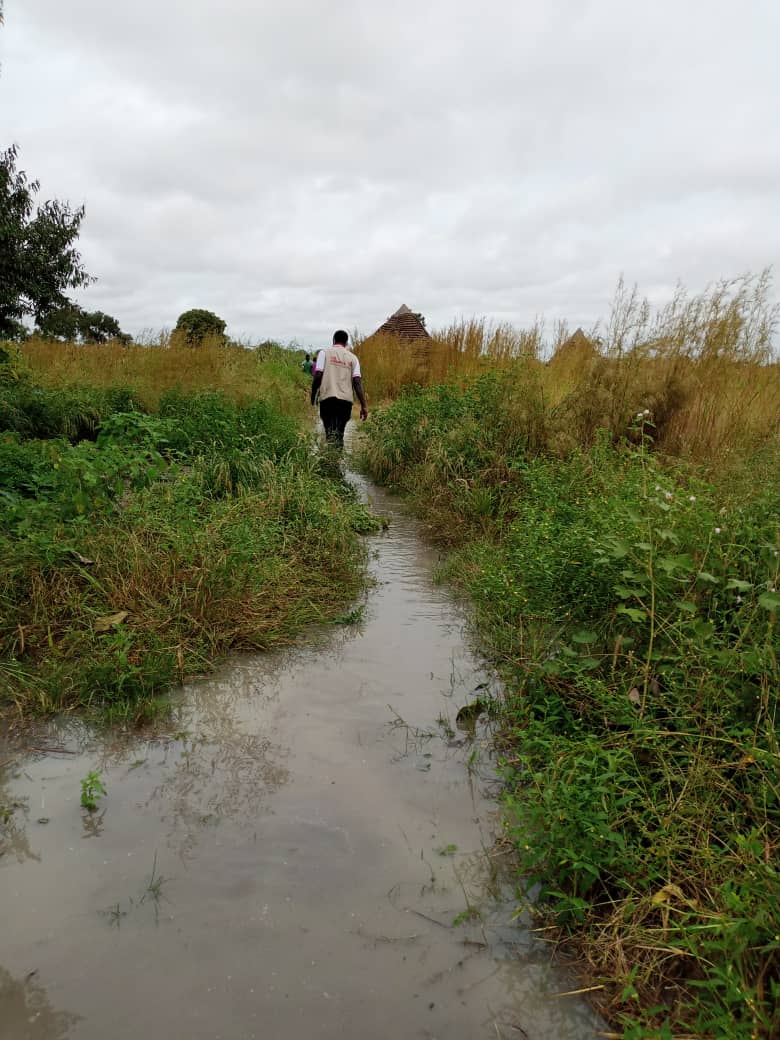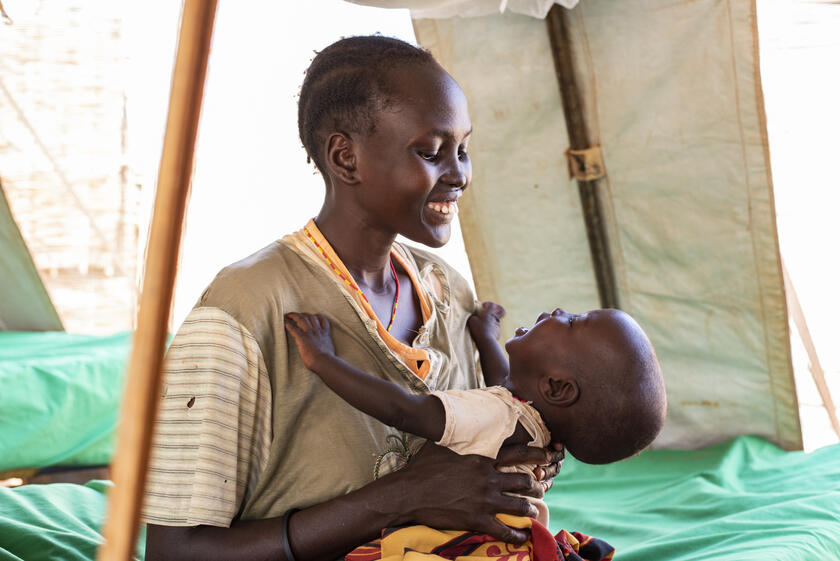World Food Day: Climate change and Corona pandemic tighten global hunger
Berlin, 14 October 2021
Johanniter improves food situation for hundreds of thousands of people
The number of people suffering from hunger continues to rise worldwide. This is due to new and ongoing conflicts, the Corona pandemic and the noticeable consequences of climate change. But the rise in food prices is also making it unaffordable for a large part of the population in many places. According to the United Nations, about one billion people in low-income countries do not have sufficient and secure food. More and more people are thus at risk of malnutrition and undernourishment. "The Corona pandemic has exacerbated this situation because many people have lost their livelihoods and do not know how to feed their families" says Holger Wagner, Programme Manager at Johanniter International Assistance.
With our local partners and teams, we try to react as early as possible to emerging crises and save people from hunger.
Two million people in Kenya threatened by drought

For example, Johanniter has been supporting communities in north-eastern Kenya to stabilise their food situation for many years. In addition to improved cultivation methods for efficient agriculture, wells are currently being drilled to provide people with long-term access to clean water and to enable them to irrigate small areas of land. For months, another drought disaster has been looming in the region.
Too little rain has led to parched pastures and poor harvests. More than two million people in Kenya are currently threatened by acute malnutrition. "We are losing our livestock because of the drought. These animals are our main source of income. If they die, we will be impoverished and defenceless against the situation," says Kassim Gufu, a herder from Bulesa village in Isiolo County. Johanniter, together with its local partner organisation in Isiolo district, is therefore distributing food vouchers for particularly vulnerable families.
Floods in South Sudan exacerbate acute food shortage

The situation in neighbouring South Sudan is very different: severe flooding in large parts of the country has forced around 400,000 people to flee. They have hardly any food and water left. In the Johanniter project regions of Wau and Jur River, in the province of Western Bahr el Ghazal, 27 people died in the floods. 64,000 gardens, which were a source of food for families, were devastated. Johanniter team has seen many affected people moving from the affected area to safe places and is still providing medical care to both the affected area and the safe zones.
Already in May this year, the United Nations warned of one of the world's worst food crises in South Sudan. Around 7.2 million people, about 60 percent of the country's population, are at risk of hunger. This is due to conflicts between different militia groups and constant displacements. The recent floods are making the situation much worse.

"The number of patients in our stabilisation centre for starving and sick children in Wau has skyrocketed, even though it is harvest time. The nutritional situation of the families should actually be improving. However, the negative trend illustrates the impact of the floods. We fear that the situation will worsen in the coming months during the sowing period," reports Janvier Bahati, Senior Programme Manager of Johanniter in South Sudan.
Johanniter is active in South Sudan in the provinces of Western Bahr el Ghazal and Torit, where it serves hundreds of thousands of people. Malnourished and undernourished children are cared for in various programmes, and two health facilities provide basic medical care and psychosocial support.
Background
16 October is World Food Day. The day is a reminder that millions of people around the world go hungry. According to current figures from the United Nations, more than 800 million people worldwide are acutely threatened by hunger. Especially in Africa, the number of hungry people has risen sharply. Therefore, Johanniter focuses its activities in Kenya, Congo, Mozambique, Uganda and South Sudan on the treatment of malnourished children and women. In addition, they help with training, tools and income-generating measures to improve the nutritional situation for the people in the long term and sustainably.
Treat and Prevent Malnutrition
In all our projects in the health field, at Johanniter we are committed to measures that prevent acute and chronic malnutrition and undernourishment. The focus is primarily on the phase from the beginning of pregnancy to the second year of a child’s life, which is crucial for the child’s development.